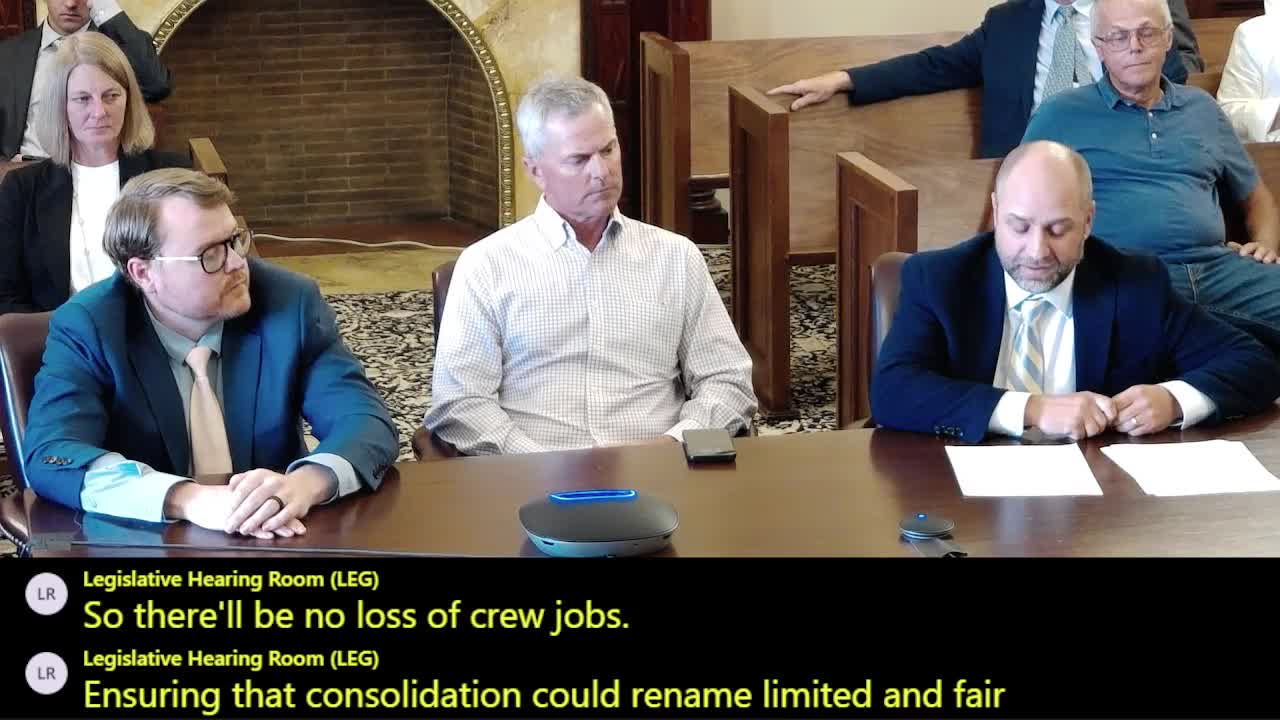Attorney Advocates Operational Flexibility to Protect Massachusetts Working Waterfront
July 30, 2025 | 2025 Legislature MA, Massachusetts
This article was created by AI summarizing key points discussed. AI makes mistakes, so for full details and context, please refer to the video of the full meeting. Please report any errors so we can fix them. Report an error »

The Massachusetts Senate Committee on Post Audit and Oversight convened on July 30, 2025, to discuss critical issues affecting the state's maritime economy, particularly the scallop fishery. A key focus of the meeting was a proposal aimed at enhancing operational flexibility within existing regulations, which advocates believe is essential for the future of the industry.
Drew, a representative from the fishing community, emphasized that the sustainability of the scallop fishery is not solely dependent on offshore conditions but also on preserving the working waterfront onshore. He highlighted the significant development pressures faced by coastal cities like New Bedford and Gloucester, warning that the loss of essential infrastructure—such as dock space and cold storage—could jeopardize the seafood economy. "Once working waterfront access is gone, it's almost impossible to get it back," he stated, urging the committee to protect and invest in maritime infrastructure and industrial zoning.
The discussion also touched on the importance of the sustainable scoping fund, which represents a commitment from the fishing industry to invest in its future. Drew pointed out that opening the northern edge of fishing areas could provide science-based opportunities for growth, while the concept of permit stacking was introduced as a modern solution to current challenges in the fishery.
The committee's deliberations underscored the need for proactive measures to safeguard the maritime economy and ensure the longevity of commercial fishing in Massachusetts. As the meeting concluded, the emphasis on collaboration and investment in infrastructure was clear, signaling a commitment to supporting the working communities that rely on these vital resources.
Drew, a representative from the fishing community, emphasized that the sustainability of the scallop fishery is not solely dependent on offshore conditions but also on preserving the working waterfront onshore. He highlighted the significant development pressures faced by coastal cities like New Bedford and Gloucester, warning that the loss of essential infrastructure—such as dock space and cold storage—could jeopardize the seafood economy. "Once working waterfront access is gone, it's almost impossible to get it back," he stated, urging the committee to protect and invest in maritime infrastructure and industrial zoning.
The discussion also touched on the importance of the sustainable scoping fund, which represents a commitment from the fishing industry to invest in its future. Drew pointed out that opening the northern edge of fishing areas could provide science-based opportunities for growth, while the concept of permit stacking was introduced as a modern solution to current challenges in the fishery.
The committee's deliberations underscored the need for proactive measures to safeguard the maritime economy and ensure the longevity of commercial fishing in Massachusetts. As the meeting concluded, the emphasis on collaboration and investment in infrastructure was clear, signaling a commitment to supporting the working communities that rely on these vital resources.
View full meeting
This article is based on a recent meeting—watch the full video and explore the complete transcript for deeper insights into the discussion.
View full meeting
